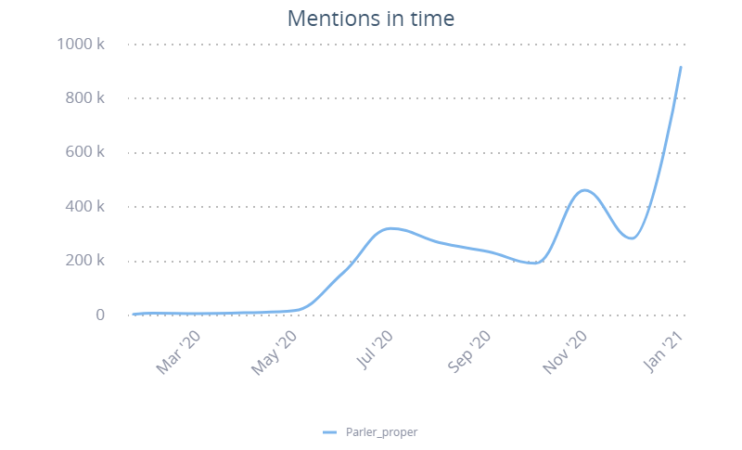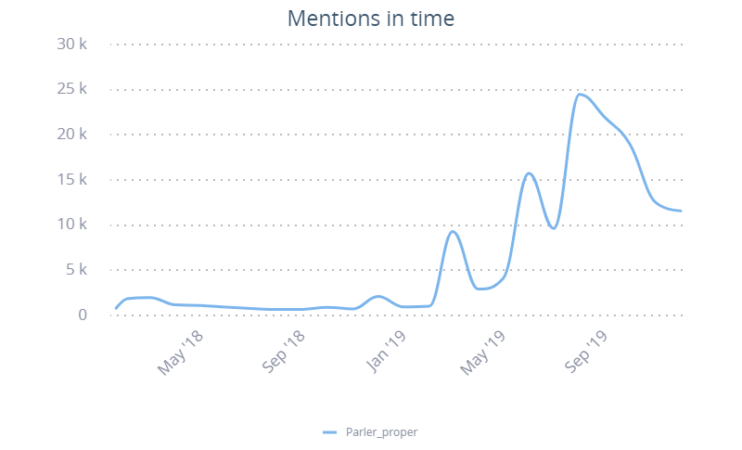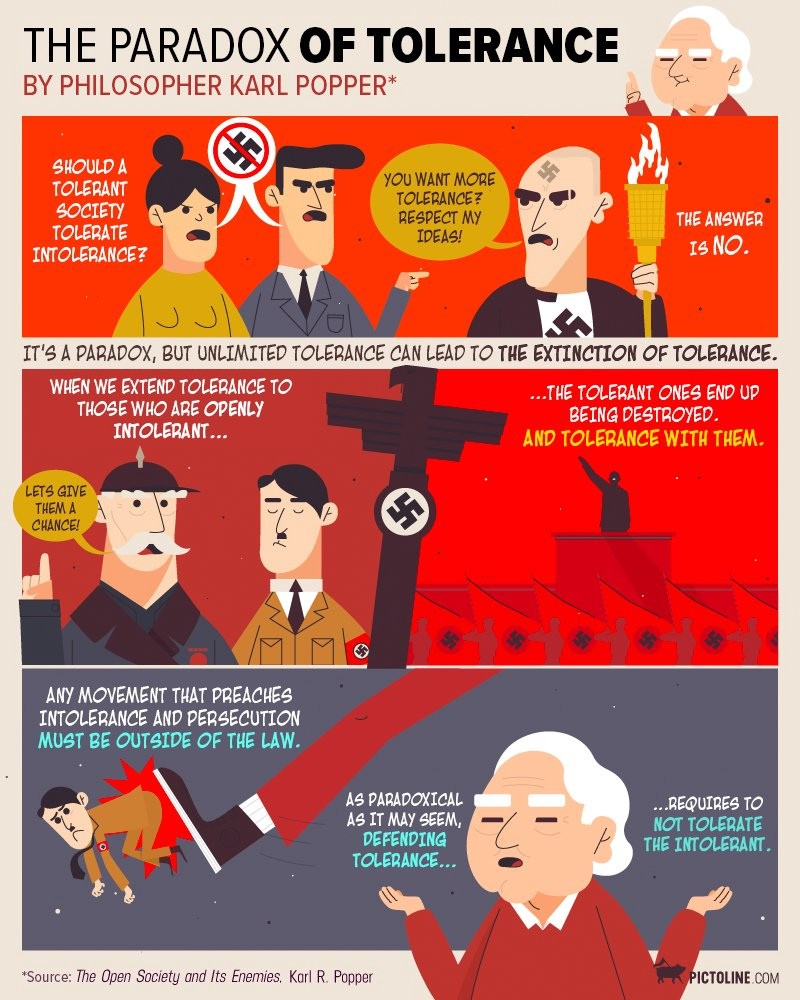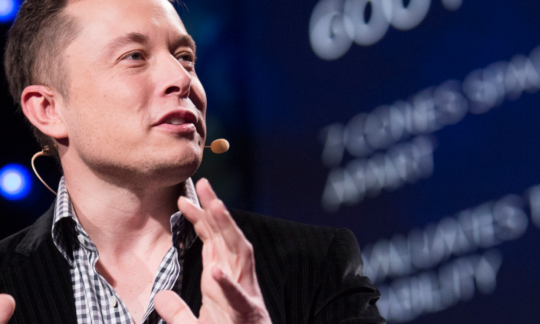The Rise and Spectacular Fall of Parler
Social networks come and go – and every single one has a story to tell. Vine was ahead of its time – it was killed off before the same format found much more success with TikTok.
MySpace simply couldn’t compete with Facebook’s meteoric rise. Google+ was dead on arrival. The list just goes on.
No social network, however, has such a spectacular story to tell as Parler – the ill-conceived “free speech” haven for far-right figures and their followers. Its mission statement obscured the true nature of the social network.
It all came crashing down following the attempted coup on the United States Capitol on January 6th, 2021. The story of Parler’s downfall is a tragicomedy of spectacular proportions. Literally everything that could have gone wrong – did. But before we get to it, we should discuss what it was, why it came about, and what it led to.
“Free speech” – but only if it’s far right
Parler emerged in 2018 as an “alternative” to mainstream social media sites, such as Facebook and Twitter in response to their perceived “censorship” of far-right figures.
Right off the bat, let’s make some things clear.
What Parler claimed was “censorship” was, in reality, social networks enforcing their own terms of service. As it turns out, content containing blatant racism, antisemitism, homophobia and other – frankly repulsive – views is something Twitter, Facebook et al don’t want on their platforms. They are, after all, private companies offering a service. They get to dictate the rules: if you don’t like them, you can go elsewhere.
Parler, then, established itself as the “elsewhere”. Of course, it couldn’t admit that it’s essentially courting “that” type of content. It decided to hide its true nature behind a facade of being a “free speech” platform, without any “censorship”.
This facade, however, did not stand up to scrutiny. Five minutes on Parler would disprove any of their claims of being anti-censorship. Any user perceived as a “leftist” or “liberal” would be banned, as would be any sort of parody accounts.
It quickly emerged that the site was there for one specific demographic: the unabashedly racist.
Parler: A celebration of hate
With such a clear target group, it should come as no surprise that the content found on the social network was, frankly, extreme. As commentators have noted, Parler quickly was flooded with far-right content.
Antisemitic, racist content flourished. Holocaust denialism was common. The same was true for islamophobia, homophobia, transphobia – name any kind of hateful behaviour, and you’d find hundreds of Parler accounts freely sharing content of that nature without any pushback.
And, frankly, could it have turned out any other way? High-profile users on Parler included such figures as Gavin McInnes (founder of the neo-fascist organisation the Proud Boys), conspiracy theory peddler Alex Jones, KKK leader David Duke, as well as members of organisations such as the white supremacist group Atomwaffen Division.
The contrast between Parler and other social media sites could not have been greater: on Twitter and Facebook, far-right figures aim for a degree of “respectability” in order to play along to liberal sensibilities. This provides them with plausible deniability: “would a full-on fascist be this well-spoken?”
On Parler, the facade wasn’t required. Users could go “mask off” – that is, they could say the “quiet part out loud.” This is best summed up by Twitter user @chinchillazllla’s comment:
did anyone even use Parler to post cat pics or whatever? because the couple times I browsed all I saw was, like, the stuff that it’s famous for. it seemed to be just concentrated evil.
— i bless the rains down in castamere (@Chinchillazllla) January 14, 2021
Parler initially was only a blip on the social media radar – it hovered just below two million users for most of its lifetime. This changed in 2020 – once major social media networks started fact-checking posts in an effort to combat misinformation, many conservative accounts moved to Parler, where they would be free of such pesky principles as “not lying about a deadly pandemic”.

This is reflected in SentiOne data – as you can see, the number of people talking about Parler rises dramatically around May – when major social networking sites started cracking down on online misinformation and removing content related to online conspiracies.
This helped Parler to explode in popularity. Where other social media platforms were attempting to do their best to fight misinformation and unfounded conspiracy theories, Parler explicitly embraced them. It quickly became a second home for QAnon believers, COVID denialists and people who believed the 2020 United States presidential election was stolen from sitting president, Donald Trump.
As The Atlantic put it, Parler “finalised its divorce from reality” after Trump’s November loss. The site became an echo chamber for conspiracy theories. This made it fertile ground for far-right extremism to take root.
When words become action
Parler became one of the biggest hubs for recruitment into far-right organisations in the United States. Militias, white supremacist groups and adherents of the Boogaloo movement (calling for a second American civil war) such as the Proud Boys already had a presence on Parler.
The constant fueling of delusions and conspiracies on Parler only served to further radicalise its user base. It therefore comes as no surprise that some of them were stirred into action.
On January 6th, 2021, the United States Congress assembled to formally ratify the results of the 2020 presidential election. At the same time, far-right groups, encouraged by President Trump, gathered under the Capitol building to protest what they deemed to be a “stolen” election.
Again, so that there’s no misunderstanding: that’s delusional. No irregularities were found in the electoral process.
This didn’t stop the crowd from assembling under the Capitol, demanding the electoral process be stopped. Eventually, the crowd broke into the building. This was a planned, coordinated act of domestic terrorism or treason, depending on your definition. Parler was used to incite violence and it was one of the main channels used for that purpose.
Enough is enough: Parler gets deplatformed
Parler played a key role in organising the attack. Following the storming of the Capitol, social media said enough was enough: Trump was permanently banned off of Twitter and suspended on Facebook. This triggered another mass exodus of far-righters to Parler. The site quickly became flooded with death threats aimed at Vice President Pence, President-Elect Joe Biden and other political figures.
This time, however, there was a pushback. Grassroots efforts to shut down Parler started popping up, pressuring Google and Apple to take the app off their app stores. Similar efforts were made towards Amazon Web Services, which used to host the service.
These succeeded: both Google and Apple removed Parler from their app stores. The service also had its hosting cut. That wasn’t all, however – everyone started leaving Parler, including its lawyers.
It seems that it’s all fun and games when you’re calling for domestic terrorism, until someone actually goes out and does it. Now, almost all web hosting services have rebuked Parler and its future – if any – seems uncertain.
What’s important to note here is that throughout its lifetime, Parler was an extremely niche site, barely even registering on the social media radar: this is what its first two years of life looked like. On average, each month in 2018 brought it less than a thousand mentions. It changed in 2019, but it still didn’t manage to clear even 25 thousand mentions at its peak in August of that year.

2020 was undoubtedly Parler’s best year, popularity-wise, but even then it paled in comparison to mainstream sites. In fact, the forced shutdown gave it the most attention in its lifetime!
This, however, wasn’t the end of Parler’s woes. The true sucker punch came just before it was taken down.
Parler: the pinnacle of data security
While every platform associated with Parler was busy getting out statements disavowing the app, a leak happened. The tweet below explains the situation succinctly (warning: mildly strong language).
PARLER GOT FUCKING OWNED BAD…and I mean BAD 😂
“This group of Internet Warriors then used that account, to create a handful of other ADMINISTRATION accounts, and then created a script that ended up creating MILLIONS of fake administration accounts.”
HOLY SHIT HAHAHA 😂🤣 pic.twitter.com/bS3GSRsxET
— B̤̿it̺̕B͓̚ur͍̒neȑ🔥 k33p !7 m0v!n (@bitburner) January 11, 2021
The tl;dr version is thus: a security hole was discovered in Parler’s public-facing API. This API allowed basically anyone to create an admin account without any verification. The same API also allowed access to literally all of the content on the site: posts, user profiles, the metadata associated with both… the list goes on.
Twitter user @donk_enby then started writing scripts to go through Parler’s API. Eventually, she scraped some 80 terabytes of data. Among her findings were posts made during the attack on the Capitol – by the very people perpetrating said attack.
More interestingly, her scraped data also contained deleted posts. As it turns out, Parler did not actually delete any data. The app only set a “deleted” flag on a given post, preventing it from being displayed. This, of course, is extremely unfortunate for any participants of the riot and attack that wanted to remove any traces of their involvement.
What’s even worse is that the data pulled from the public API contained what should have been secure data about Parler’s users. In order to receive a “verified” status on the site, each user was required to send a photo of their driver’s license or other form of government issued ID. These photos, of course, were fully accessible.
As a final cherry on top, geolocation data and other identifying information was not scrubbed from any photos uploaded to Parler.
The scraped data is now being used by law enforcement agencies to track down and prosecute anyone involved in the events of January 6th.
How was this allowed to happen?
The shutdown of Parler is definitely welcome news, but don’t be fooled into thinking that this solves the problem of far-right violence once and for all. Parler was only the end result of a system that allowed it to emerge and flourish. It’s the symptom, not the disease.
Parler is, after all, only one branch of the massive threat that is far-right “politics”. Ideologies such as nationalism and fascism are often allowed to exist and thrive in liberal democracies in the name of “free speech”. The logic goes as follows: allow them to be vile and hateful and let their ideologies be defeated in the free market of ideas.
Unfortunately, this logic is flawed. As philosopher Karl Popper pointed out all the way back in 1945:
“Unlimited tolerance must lead to the disappearance of tolerance. If we extend unlimited tolerance even to those who are intolerant, if we are not prepared to defend a tolerant society against the onslaught of the intolerant, then the tolerant will be destroyed, and tolerance with them.”

Simply put, in order to have a tolerant society, intolerance must be fought and extinguished at every opportunity.
Unfortunately, the moral obligation to fight intolerance often loses when confronted with capitalism. Major social networks could have banned Trump much earlier – and they should have. His account was documented to have broken Twitter TOS multiple times even before his presidential bid.
To Twitter’s board, however, his presence on the network was seen as profitable. Nevermind the fact that in his twelve years of the platform he spread dangerous conspiracy theories and misinformation like nobody else. Nevermind the fact he threatened nuclear war on other countries on the platform! He generated engagement (and thusly, profit) – and that was enough.
This isn’t an isolated case. Owners of social networking sites have a moral obligation to fight far-right extremism: this moral obligation should have always been prioritised over profit margins.
Unfortunately, this point was wasted on Mark Zuckerberg and Jack Dorsey – and now all of us have to reckon with their moral failure. Far-right terrorism is on the rise precisely because it was allowed to flourish on social media, where it was able to reach and “redpill” (convert) hundreds of thousands of disenfranchised people.
Don’t be fooled: Facebook and Twitter didn’t ban Trump and other far-right figures out of a moral obligation. They only ditched them when it turned out that they were no longer a profitable prospect.
The same story happened with the Parler shutdown. Google, Apple and Amazon didn’t take the app down out of some sort of moral outrage against far-right extremism: it was because Parler was a direct danger to their business.
If only Big Tech was as uncompromising in its approach to fascism as Captain America:




